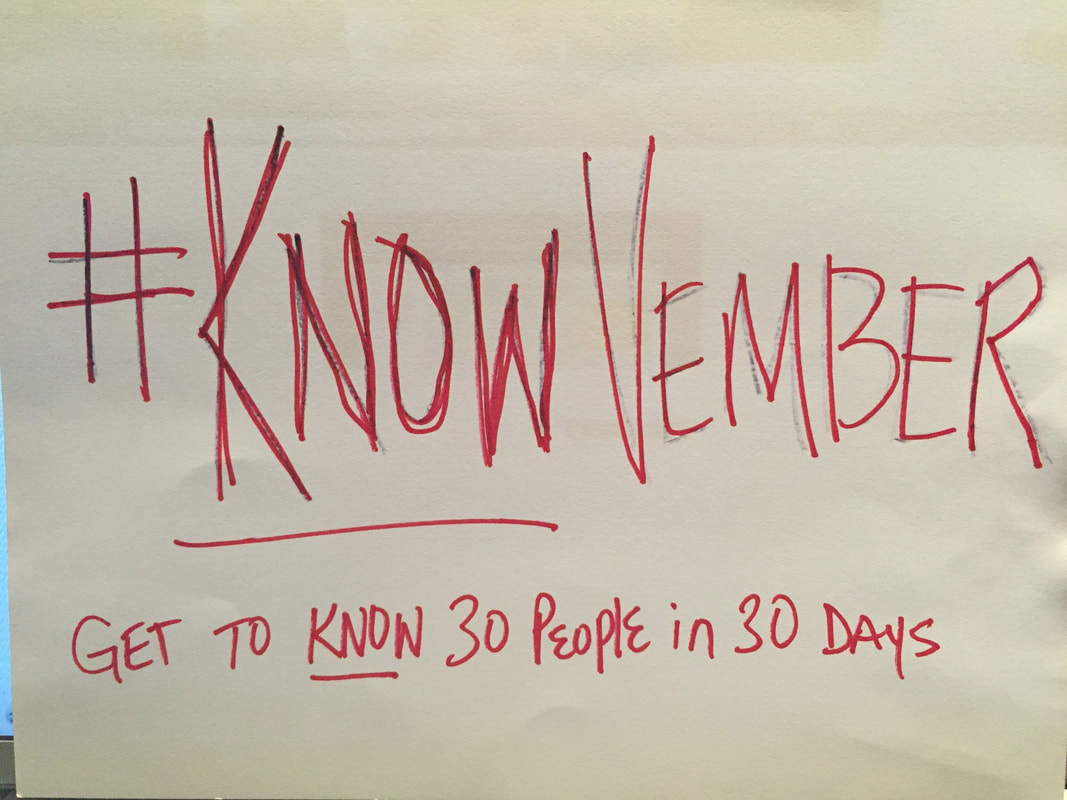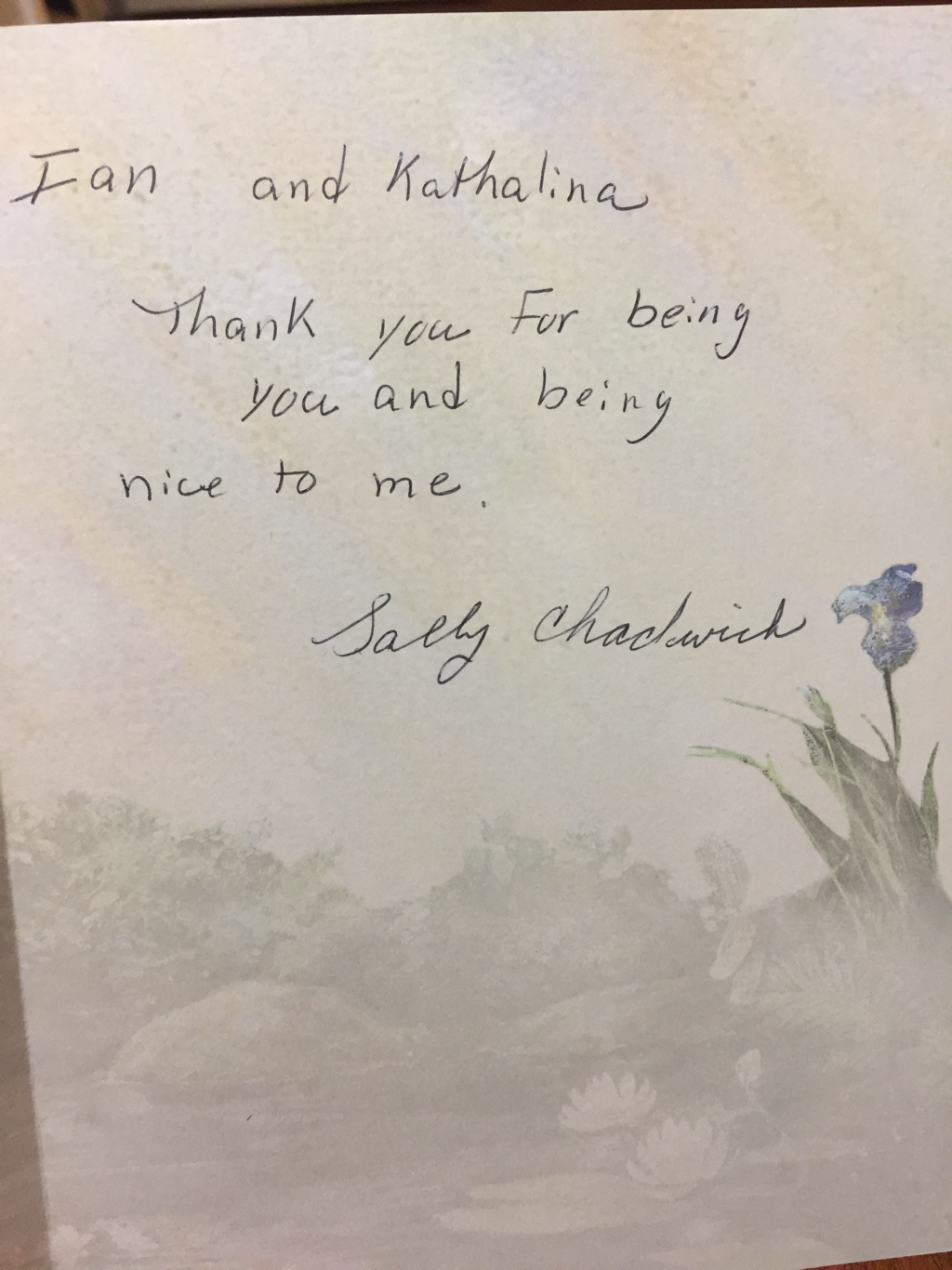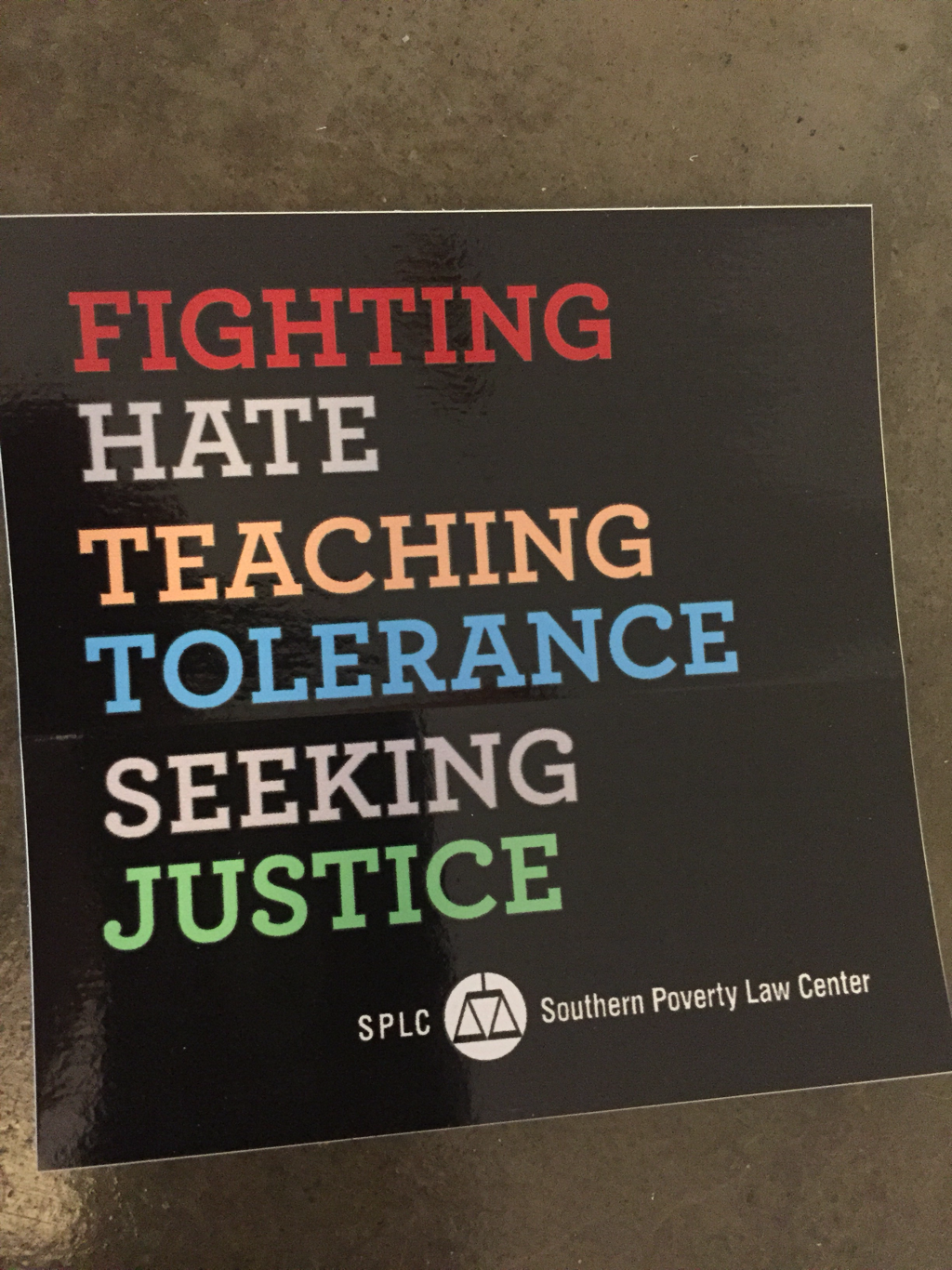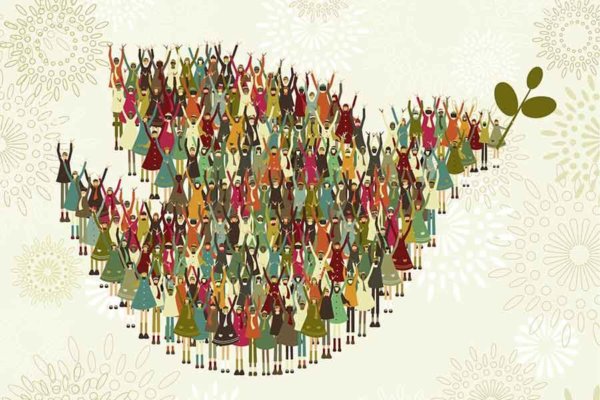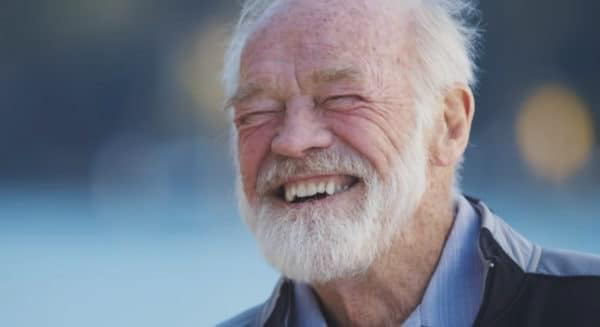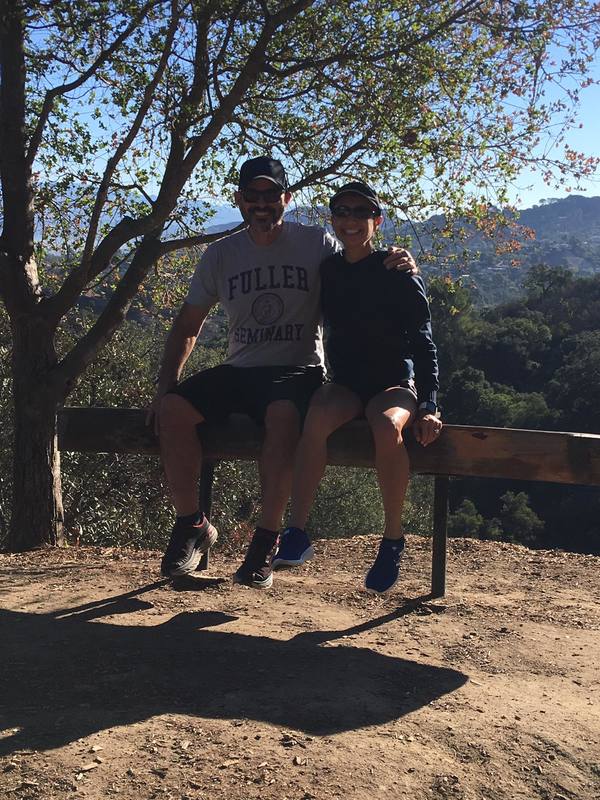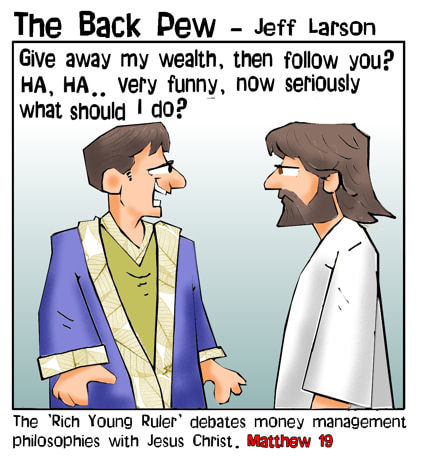|
Let me ask you something. How well do you know the people in your neighborhood? Not just next door, but like four or five doors down? Do you know the name of your mailman or the person who works at the gas station you go to? What’s their story? Who are they? Where are they from? One of the best ways we can begin to heal and unit our nation is by getting to know the people who live around you. I’m officially declaring the month of November as Know-Vember. And I am challenging you to meet 30 new people in 30 days. This could be someone at your school in another grade, or someone in your building who works at a different company. It might be the person right next to you. I’m challenging you to introduce yourself to one new person a day just ask some basic questions. And don’t forget to challenge them to keep this positive vibe going. When we all get to know our neighbors, and the people who work and live in our communities, then we can learn how to respect each others difference or find common ground that unites instead of divides us. Help our country begin to heal this: KNOWvember! Upload your stories on our Facebook page: @KNOWvember
0 Comments
There are some days where it’s hard to show kindness. And then, something happens to snap you out of it. I like to think God has a way of reminding us from time to time how important it is to be kind to others.
Below is a picture of a card I found in a box of old clothes. It had no purpose there, nor do I know how it got in there. But I do know why it was there...to remember how important it is to show kindness and love to another human being. The card was from 2 years ago, from a very special friend who was sad to see us leave the church I had been serving. A little over a year later, she passed away. Last summer I had the privilege and honor to officiate her funeral. She paid for our travel expenses, and even bought us tickets to a Tigers game so we could share one last memory before I released her ashes into centerfield. You never know. Today I needed a reminder. So I’m sharing this card just in case you do too. There still are people who have not given up on the least of these our brothers and sisters. Are you one of them?
If you wish to donate to their cause, here’s a link: https://donate.splcenter.org Some 2,000 years ago, a radical "left-leaning"teacher taught a lesson on how to live life in such a way that it would produce universal peace. Mahatma Gandhi, Martin Luther King, Jr. and John Lennon are just a few of millions of people who have borrowed heavily from this man who only took the wisdom of his culture from 2,000 years prior. But as all these people can attest, some words are called words of wisdom because they outlive the trends and buzzwords to linger in the infinite universe. Here is just a small sampling of what this guy said about living life in a way that celebrates peace, unity, and perhaps even joy. As you read them, try to picture these words in light of the news of the day. What images come to mind? What feelings stir within you?
Do these words sound like sound advice? If so, why is it so hard for us to do? I mean, we can love others but that's not what the guy is saying. He's saying love those who don't love you back. Even bad people can love those who love them. They can do good to those who do good to them, too. And it's easy for anyone to lend something to someone knowing that you will be repaid (and maybe with interest).
But those who can do those things listed above will be rewarded differently. "You will be rewarded greatly, you'll be children of the Most High who is kind to the ungrateful and the wicked." Perhaps we ought to stop pretending to be mean grown ups and start being children who are loved and cared for. Therefore, this wise man said, "Be merciful just as your Father is merciful." In other words, stop trying to divide or segregate or conquer or turn people against each other but instead love, do good, bless, pray, offer, give, and receive the reward...peace, now and forever. Maybe that might change the tone of the news, the politics, and the feelings we are having living in an age of uncertainty. And by the way...that guy, that left leaning teacher was Jesus, not Jesús. Out of a 2017 interview with Eugene Peterson, Carey Nieuwhof wrote an inspiring blog post on what it takes to become the next leader to fill the void left by another great voice in theology and the church. (Read the blog here).
This past Monday, Eugene Peterson passed away at the age of 85 in his Montana home. His work was influential on me, as well as many people around the world; including Bono from the rock band U2 (watch a wonderful short with the two of them talking about the Psalms). Peterson is best known for The Message Bible, and his lifetime of work and faith in Christian discipleship that included 38 other books and hundreds of articles. Nieuwhof recorded a wonderful podcast with him from which this was discovered: “I don’t read the newspaper much. I can’t find much about God and Jesus in them.” Nieuwhof wrote, “Instead, he worked on translating Galatians from Greek to English during the race riots in Baltimore in 1968. Peterson says ordinary citizens arm themselves with guns and weapons, but Peterson said that while people were worried about what was happening in the city, he was worried about what was happening in people. So he brought the Biblical text to them in a fresh translation. That was the origin of the Message.” I encourage you all to read the post on becoming spiritual leaders like Peterson. And or listen to the podcast which is on CaryNieuwhof.com
If you’re like me, you might be thinking, “Who am I to claim a call from God? I’m no holy-roller super-human-angel hybrid. I’m just me – a screw up with a story.” But yet here we are. In spite of our past, God uses our stories to testify to the greater story of Jesus Christ. I’ve come to discover we don’t choose to serve God. God chooses us. And God never let us go.
My job might be to do the daily things “pertaining to God.” But as Christ bearers, we all share in the task of praying for one another, forgiving each others sins, and caring for the least of these our brothers and sisters. We are all priests, called for a purpose. So where do we begin to be what we are called to be? How can we live up to not just our faith but up to our potential to change the world with it? Today’s scripture outlines three paths we must walk down as the priesthood of all believers. They are: call, humility, and obedience. I was 13 when I first discovered my call to ministry. But being afraid and unsure, I didn’t fully accept it until I was well into my 40’s. Although I faithfully believed in God’s unconditional love, I didn’t always believe I was good enough to receive it…muchless be it. But if God chooses to work through us then I reckon that our imperfections are perfect. I know my ministry is more than a job or a career, it’s something I have to do whether I’m getting paid or not. It’s a higher purpose in life that leads to do things beyond my own selfish needs. This call is vital part of my identity and values, and often demands great sacrifice to live up to it’s potential. As Christ bearers, our call is to continue Jesus’ ministry – to proclaim the good news of God’s redemptive love for all people – even if it means making a sacrifice. And the way we do it is by living out God’s love in the world just as Jesus did– with humbleness and grace. This week a man told me a story about how he was helping a Vietnam Vet deal with PTSD. He said all he really doesn’t do much but listen and offers a safe space to talk and cry. Do you think he knew he was living up to his call to be like Christ who said, “Whoever wants to be first must be last of all, and servant of all.” We who follow Christ and bear his name on our hearts are more than the people in the pews. We’re the pastors who listen and comfort, the priests who forgive, and the ministers who show grace upon grace, just as God has shown it to each one of us. We must humble ourselves so others can receive God’s love. Jesus taught us how to exercise great humility when he came to us and endured our pain, experienced our weakness, and suffered us with us, not for us. If you are familiar with the gospel stories, you might recall Jesus didn’t spend his time in the temple with the High Priest offering sacrifices on our behalf. Instead Jesus walked on our dirty streets and entered our messy homes. He came to where we were, and blessed our stains and smells. And comforted our wounds and pain. Sober or stoned, Jesus was and is there with us; loving us no matter what. And loving us that much more that he would do whatever it took to get us out of where we were and into where he was. More than the fulfillment of God’s promise to the world, Jesus taught us how to love and be servants to all; how to be obedient to God’s will and not our own. Jesus is the literal meaning of the word “priest” – the “bridge” that links God’s desire and our needs. Jesus challenges us to put on our clerical collar and open up our pastoral heart –whether we think we’re good enough or not. We don’t need to be perfect for God to use us. At our baptism we too were ordained and appointed by the One who hovered over the muddy waters of the Jordan River and declared, “You are my beloved child, today I have begotten you.” By this same Spirit, we receive the same power, vision and grace as Jesus did. We have all that we need to be bridges for God’s shalom to move throughout all creation. But will we be obedient to this call? Will we humble ourselves or make the sacrifice? It’s not as hard as some might make it to be. The priesthood that Jesus models for us is not set on a throne, or at a pulpit. It’s here and there and everywhere we’re at. It’s here, in the midst and middle of life, where we are most present. Jesus tells us not dwell in the past or worry about the future, because there’s work to be done now. We are called to be priest, to be bridges in the midst and middle of broken homes and relationships. We are called to be God’s love in the midst and middle of conflicts and crisis. Wherever hunger or injustice is present, wherever there are sick and dying people, or captives and prisoners...there we are called to be…right in the middle of it all. A bridge between God and others so all lives might find true healing and peace. And thrive in all of life as God has always desired. By God’s grace through Jesus Christ, we have been called and chosen and claimed to be one with Christ, and one with each other in his name. We are the church, the people and her priests. We are God’s living sanctuary for all who are in need of refuge, forgiveness, mercy and grace. By the love that has been given to us by God through Christ Jesus, we possess all that we need to share that with everyone whom we share this sacred space called life. If we are to call ourselves Christians, then we must answer the call to be like Christ, and to bear Christ’s likeness with our heads, our hearts, and hands as well. To borrow from Marshall McLuhan who famously said, “The medium is the message” I am challenging you this week to be the medium by which God’s message moves throughout all of creation. Let us now go and be just that…human billboards advertising God’s love in the world. See how God uses our past to bring about glory in the present! Work Cited Bartlett, David L., Barbara Brown Taylor, eds. Feasting on the Word: Year B, Vol. 4. Westminster John Knox: 2009. pp. 182-186.
Kindness can be overwhelming. But it can also produce some amazing results. One simple act - like starting a conversation with a stranger - can go a long way with helping us focus on the tasks at hand.
My friend stepped out of her comfort zone and started up a chat with a total stranger, and then took this stranger’s words to heart to make her choice. An overwhelming task became doable simply because she put her faith out there. As I type this, my friend Darlene is probably enjoying a little sunshine in her life. This is just a simple reminder to look for Jesus in the other. For it's in these moments we often find a refreshing surprise. Kindness. Friendship. Community. Love. Gentleness. Respect. Honesty. And a whole bunch of other stuff that makes the world a little better than before. We are all called to be ministers and pastors and priest. This is one, not-so-overwhelming way to do it. Yesterday Seth Godin wrote a short but simple blog post:
“Learning without Doing. It’s certainly possible. But it’s unlikely you could learn to ride a bike by watching a lot of videos about it. Or teach a toddler to walk. In fact, it’s unlikely that you could learn to sell, to design useful objects or to solve interesting problems either. You can try to learn without doing. But why?” I can learn a lot about Jesus by reading the Bible, but I can’t really understand what he did, or the impact he made, without at least trying to do it myself. To walk in his shoes by loving and caring for others beside myself. Seth ends this small yet powerful observation by asking (or stating) “But why?” A great question/statement that resonates with me. And it still sits on my heart as I try to figure out this blog. I could write about people connecting with strangers in their communities. Or I could just go learn it myself without actually doing anything. But why? When I could experience it. You could experience. We could experience it together. And isn’t that the point? To experience this life, in all of its fullness, together. The Kit-Kat theory...better to share the goodness...life is more fun when we experience it with others. It’s why Tom Hanks befriended Wilson the volleyball in the movie “Castaway.” The Dessert Father’s, who lived in isolation, would gather once a week to share a meal and any spiritual breakthroughs they may have had. We are not meant to be alone. God came to live among us in human flesh and in our broken humanity. God experienced us as we experience one another. In the flesh, Jesus ate and smelled and drank and burped just like we did. He walked, ran, and if it had been around back then, I’m sure he’d have ridding a bike, a skateboard, and a motorcycle. I imagine God already knew how to do all this human stuff. I’m sure God could have watched a video on YouTube if not. But instead God came to us, vulnerable and weak, to live and die with us. And when we experience Jesus, we too live and die and are raised up to glory with him.
With all the stuff this man had acquired, he still believed he didn’t have the one thing his heart desired the most. Despite a lifetime of practicing his faith he is still left looking for more meaning.
We live in a culture of materialism where we measure nearly everything in monetary terms. We are inundated by ads tempting us to believe that if we buy this or that then our life will be better off. We constantly buy into this narrative. Yet we always seem to come up short. So when we hear Jesus tell us to liquidate our 401k’s and give the proceeds away, our first reaction is to high-tail outta there. In the book, The Cost of Discipleship, Dietirch Bonhoeffer wrote that “discipleship can only be maintained as long as nothing is allowed to come between Christ and ourselves – neither the law, personal piety, or even the world.” So the moral of this young man’s story might be: careful what you wish for, because it might not be what you’re ready for. We might be tempted to look down on this rich young man, and even snicker as he walks away. But let’s put on his shoes for a moment. In the ancient world material prosperity was widely seen as a reward of a person’s spiritual virtue. This is similar to the prosperity gospel preached in many churches today. The man’s wealth would suggest he’s done all the right things to make God blessed him so handsomely. Eternal life was ‘a given’ to someone like him. Even the disciples believed it. “If a rich person can’t be saved, then who can?” Here’s the plot twist of this little telanovela. This deeply religious man neglected to realize that he was a beloved child of God, made in the Divine image. He already inherited God’s eternal Spirit. What Jesus awoken in this man is a whole new level of understanding what eternal life in the Kingdom of God is about. It’s not about following laws until the end of the ages. Nor is it about the quantity of stuff, both good and bad, that we accumulate. Instead, it’s quality of our giving that stuff away. It’s about connecting with the ageless values of God to care for the poor and needy. It’s the quality of our relationship with Jesus that unlocks this loving and giving spirit of God that we already possess. In other words, it’s not about making a deal, but making a difference so others might benefit and follow Jesus. Discipleship is less about checking off a list of religious obligations, and more about following the Way of Jesus that leads to eternal life. The journey begins with letting go of the life you know and love. It’s about leaving behind your home and possessions to serve someone other than your self. So careful what you ask for, right? I can identify more with this man more than any other person in the Bible. When we did our first move for my ministry, I had to get rid of my collection of mid-century modern furniture and a whole slew of kitchy knick-knacks that I’d acquired over the years. It sucked watching my stuff drive off in someone else’s car. Letting go of the things we love hurts. But am I defined by what I own, or by who owns me: God. The man walked away upset because he heard Jesus. And knew what he had to do. He had to let go of his old life to embrace a new and everlasting life. Sacrifice is not easy. But it’s also not impossible. Keep yourself in this man’s story. Without his wealth he would be left vulnerable and powerless – completely naked in the eyes of the world – socially insignificant. He knows that if he chooses to follow Jesus, his life will never be the same again. But isn’t that the point? Jesus calls us to let go of our past, the things have caused us to stumble and fall away from God. He says, let them go and follow him. So the question we all must ask ourselves is, “Will we?” Gauging by the dialog between Jesus and the disciples, we might assume this man ignored what Jesus asked of him. But does he? A few chapters later, when Jesus is arrested in the garden, Mark writes, “A certain young man was following him, wearing nothing but a linen cloth. They caught hold of him, but he left the linen cloth and ran away naked.” Talk about bearing it all for Christ! Scholars believe this naked man is Mark writing himself into the story. If that were true, then I would argue Mark’s real story began at Jesus’ feet where he questioned his inheritance. Similar to all the other people who were transformed by their encounter with Jesus, I believe Mark is this wild nudist who literally gave up everything he owned to faithfully follow God’s Son – just as he had been following God's commandments his whole life. This man’s story is recorded in the Bible three times. It’s safe to say his life is everlasting, a part of God’s living Word for all eternity. What do you need to give up in order to gain the gift Jesus offers? Greed, prejudice, ignorance, power or pride? What about the need to control others? Perhaps it’s a lifetime of secret shame or guilt. It’s easy to give away clothes and furniture to those in need, especially after a natural disaster like Hurricane Michael. But what about giving up your privilege or your rights? Could you walk away from the life you know and love to serve someone less fortunate? I’m not suggesting you can buy or barter into God’s love and grace. It’s yours already if you want it. But this gift comes with a cost. You need to look no further than the cross of Jesus to understand just how much God is willing to give up for you. Here’s the good news. Jesus said, “Anyone who has left their family or fields, for my sake will receive a hundredfold now in this age.” The way I see it is that with each person you show Christlikeness to, to everyone you care for and love, there will be hundreds more to serve and care for you when you need it. We are called to follow Jesus, to follow the way he loves and gives of himself to all people. Only when we are able to truly love one another, and share all our peace and prosperity with everyone, we will not only gain the world, but all the treasures of heaven. God’s love is what makes all of life eternal – it’s up to us to give it away today until the end of the ages. Works Cited Bartlett, David L., Barbara Brown Taylor, eds. Feasting on the Word: Year B, Vol. 4. . Louisville: Westminster John Knox, 2009. Bonhoeffer, Dietrich. The Cost Of Discipleship. New York: McMillian, 1949. Haverkamp, Heidi. "Reflections on the Lectionary." Christian Century, 09 26, 2018: 20. Kesselus, Ken. Possessions. 09 21, 2018. http://episcopaldigitalnetwork.com/stw/2018/09/21/possessions-pentecost-21-b-october-14-2018/ (accessed 10 12, 2018). “Grace and peace to you from God and our Lord Jesus Christ who gave Himself for our sins to rescue us from the present evil age, according to the will of our God and Father, to whom be glory forever and ever, Amen” (Galatians 1:3-5)
What a lovely way to begin- with a blessing of grace and peace. My fellow brothers and sisters in Christ who make up the local Samoan church taught me the importance of greeting and beginning service with a Biblical blessing. Noting like starting out in the Spirit of God, eh, to get the conversation started. Imagine how our world might be if we all greeted one another the way the Apostle Paul greeted the churches in his letters. We can learn a lot about how to live our lives well by reading the Bible. Richard Rohr teaches that when we read and use God’s Word maturely, we discover how they confront, convert, and console us. Nearly every story in the Bible confronts us with a bigger picture than we’re used to: God’s Kingdom, which has the power to tear down our smaller, false kingdoms. Jesus especially confronts our notions that God’s rule is okay as long as it doesn’t interfere with the human rules we follow. In such confrontations, Jesus turns our world upside down…or more accurately he turns it right-side up! God’s Word has the power to convert us to welcome this new world and way of thinking by proclamation, grace, and the sheer attraction of the good, the true, and the beautiful. God does not resort to shame, guilt, or fear like the human world tends to rely on. God converts us with unconditional, everlasting, steadfast love. Jesus is the perfect example of how powerful and life changing God’s love can be. Lastly, stories and words that make up the Scriptures have the power to console us and bring deep healing as they reconstruct us in a new place with a new mind and heart. If you seek consolation as the first meaning of a biblical text, you may not get very far because our human heart often believes we are in control of our mindset. It’s only when you let go, and let God’s Spirit move you through the text, that you are moved into a new and truer self – the beloved image of God’s love and faithfulness. Rohr, Richard. Yes, And...Daily Meditations. Franciscan Media:1997. p. 59 |
Ian MacdonaldAn ex-copywriter turned punk rock pastor and peacemaker who dedicates his life to making the world a better place for all humanity. "that they all might be one" ~John 17:21“Prius vita quam doctrina.”
~ St. Thomas Aquinas (1225–1274) * “Life is more important than doctrine.”
Archives
June 2024
|
